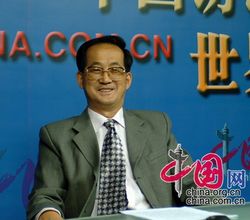Sino-Indian cooperation in the BRICS context
|
|
|
Prof. Ma Jiali is Deputy Director of the China Reform and Opening up Strategy Research Center. |
In recent years, following steady progress in building its strength and increasing its international influence, India's foreign policy has taken a pronounced active turn, manifested in a strong interest in all multilateral organizations. Since BRIC (now BRICS) is the principal platform for the emerging countries, India was interested in the grouping from the outset and its interest has become steadily keener.
From the point of view of India's national interests, participation in BRICS proceeds from several strategic considerations.
| Don't miss: |
| ? Sun to shine on BRICS in Sanya |
Second is the desire to achieve great power status. India has for many years been working tirelessly to join the great power club, to achieve genuine power and influence on a world scale. But if truth be told, the common perception of India is of a South Asian regional power, unable to move up a division to world power status. With the advent of the new century, the thirst for public recognition of India's great power status became more acute, particularly with regard to the issue of permanent membership of the U.N. Security Council. In 2001, then Indian President Kocheril Raman Narayanan said India should become a great, rich and prosperous country, and achieve a role and status in line with its size and position. In 2004, then Indian Prime Minister Atal Bihari Vajpayee said India's goal was to win a place at the table in world affairs. The Indian Ministry of External Affairs has a slogan "India Everywhere" which expresses its determination that Indian leaders should be present on each and every important international occasion.
 0
0 







